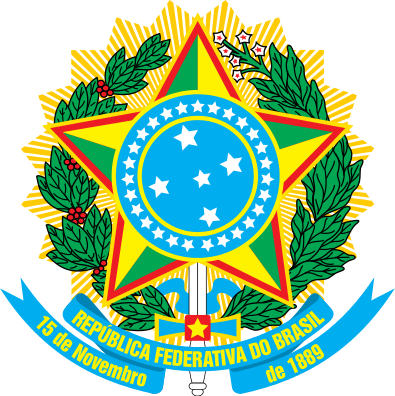Location
Following more than three centuries under Portuguese rule, Brazil gained its independence in 1822, maintaining a monarchical system of government until the abolition of slavery in 1888 and the subsequent proclamation of a republic by the military in 1889. Brazilian coffee exporters politically dominated the country until populist leader Getulio VARGAS rose to power in 1930. By far the largest and most populous country in South America, Brazil underwent more than a half century of populist and military government until 1985, when the military regime peacefully ceded power to civilian rulers. Brazil continues to pursue industrial and agricultural growth and development of its interior. Having successfully weathered a period of global financial difficulty in the late 20th century, Brazil was seen as one of the world’s strongest emerging markets and a contributor to global growth. The awarding of the 2014 FIFA World Cup and 2016 Summer Olympic Games, the first ever to be held in South America, was seen as symbolic of the country’s rise. However, since about 2013, Brazil has been plagued by a shrinking economy, growing unemployment, and rising inflation. Political scandal resulted in the impeachment of President Dilma ROUSSEFF in May 2016, a conviction that was upheld by the Senate in August 2016; her vice president, Michel TEMER, will serve as president until 2018, completing her second term.
Brazil is a federal presidential republic.
Source: CIA World Factbook
Members:
Resources
Displaying 166 - 170 of 180Law No. 784 of 5 October 1984.
This Law establishes the norms for the previous State approval of land parcelling projects for urban purposes in the areas declared of special interest for environmental protection. The Law, composed of 5 articles, individuates the binding norms for the approval process focused on vegetation protection, soil natural composition and conservation of lakes, ponds, lagoons, water courses and their related waterfront zones.
Law No. 716 of 27 December 1983 establishing protection measures for plough lands.
This Law, composed of 8 articles, establishes protection measures for plough lands. It stipulates that any utilization of plough lands for other purposes, such as parcelling or extension of cities, airports, roads etc., will depend on a specific planning and authorization by the Secretary of State for Agriculture and the Secretary of State for Environment. All rural properties under State administration are required to introduce and implement integrated plans for the utilization and conservation of their natural resources.
Law No. 1.130 providing for a detailed definition of the areas to be considered of special interest for the State.
This Law, structured in three main sections and composed of 20 articles, provides a detailed definition of the areas to be considered of special interest for the State. It sets the legal framework for the immovable properties with more than 1.000.000 m2 and those located in municipal bordering areas.
Law No. 965 of 06 January 1986 ruling on the obligation to plant trees in all allotments approved in the State of Rio de Janeiro.
This Law, composed of two articles, establishes the obligation to plant trees in the streets of all allotments to be approved in the State of Rio de Janeiro.
Act No. 76 regulating expropriation procedure in order to enforce the agricultural reform.
This Act regulates expropriation procedure in order to enforce the agricultural reform. It consists of 25 articles establishing the legal procedures for land expropriation purposes in compliance with the agricultural reform. It specifies requirements to be satisfied in order to perform the above-mentioned administrative and legal proceedings.
Amended by: Act No. 88 amending Act No. 76 on expropriation procedure in order to enforce the agricultural reform. (1996-12-23)


